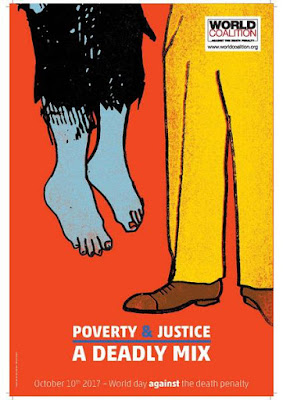The Moroccan Coalition against the Death Penalty organised a sit-in this week outside the parliament building in Rabat and renewed calls to abolish the death penalty.
In a statement the Moroccan Coalition reminded people on World Day against the Death Penalty yesterday to reiterate the importance of raising public awareness on the abolition of the death penalty.
“Inhuman and savage punishment” represents “a serious violation of the sacred right to life,” the statement said.
During the sit-in the group called on the government for the “abrogation of the death penalty in the Criminal Code”.
Suspended since 1993, the death penalty remains in the penal code though has not been used.
The Moroccan Coalition also called on the government to adopt the second optional protocol on the International Covenant on Civil and Political Rights aimed at abolishing the death penalty.
The latter was adopted and proclaimed by the General Assembly of the United Nations High Commissioner for Human Rights (HCDR) in its resolution 44/128 on 15 December 1989.
This year the World Coalition against the Death Penalty (WCADP) draws attention to the “discriminatory” aspect of the death penalty and believes that “people living in poverty are more likely to be punished with the death penalty”.
On their website the group explained how “social and economic inequalities hinder access to justice for those sentenced to death,” explaining that “the accused in such a situation of inequality often lacks resources (social, economic, cultural and also power) to defend themselves and will be marginalised mostly because of their social status”.
The last execution in Morocco took place in 1993 with the kingdom considered a de facto abolitionist country.
Despite this, 92 prisoners in Morocco have been sentenced to death since 2015, though 35 of those have been given a royal pardon.
Source: Middle East Monitor, October 11, 2017
⚑ | Report an error, an omission, a typo; suggest a story or a new angle to an existing story; submit a piece, a comment; recommend a resource; contact the webmaster, contact us:
deathpenaltynews@gmail.com.
Opposed to Capital Punishment? Help us keep this blog up and running! DONATE!
"One is absolutely sickened, not by the crimes that the wicked have committed,
but by the punishments that the good have inflicted." -- Oscar Wilde












